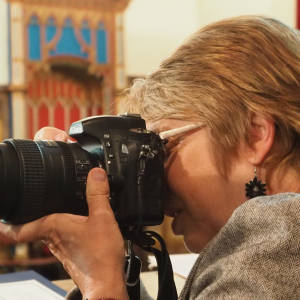The Seven Ages of Man
Today's Shakespeare Challenge for the play 'As You Like It' needed me to think 'out of the box' to come up with an idea to show the various stages of development as detailed in a speech we will all know. I selected the theme of 'drink' as (I'm sorry to say) I knew I had all the necessary props at home!
As You Like It
‘As You Like It’ is a pastoral comedy by William Shakespeare believed to have been written in 1599 or early 1600. 'As You Like It' follows its heroine Rosalind as she flees persecution in her uncle's court, accompanied by her cousin Celia and Touchstone the court jester, to find safety and, eventually, love.
"All the world's a stage" is the phrase that begins a monologue spoken by the melancholy Jaques in Act II Scene VII. The speech compares the world to a stage and life to a play, and catalogues the seven stages of a man's life, sometimes referred to as the seven ages of man: infant (fruit shoot), schoolboy (coke), lover (Breezer), soldier (beer), justice (wine), pantaloons (port) (aging and losing form and capability), and old age (whisky), facing imminent death. It is one of Shakespeare's most frequently-quoted passages. This play is also the origin of the phrase "too much of a good thing".
All the world's a stage,
And all the men and women merely players;
They have their exits and their entrances,
And one man in his time plays many parts,
His acts being seven ages. At first, the infant,
Mewling and puking in the nurse's arms.
Then the whining schoolboy, with his satchel
And shining morning face, creeping like snail
Unwillingly to school. And then the lover,
Sighing like furnace, with a woeful ballad
Made to his mistress' eyebrow. Then a soldier,
Full of strange oaths and bearded like the pard,
Jealous in honour, sudden and quick in quarrel,
Seeking the bubble reputation
Even in the cannon's mouth. And then the justice,
In fair round belly with good capon lined,
With eyes severe and beard of formal cut,
Full of wise saws and modern instances;
And so he plays his part. The sixth age shifts
Into the lean and slippered pantaloon,
With spectacles on nose and pouch on side;
His youthful hose, well saved, a world too wide
For his shrunk shank, and his big manly voice,
Turning again toward childish treble, pipes
And whistles in his sound. Last scene of all,
That ends this strange eventful history,
Is second childishness and mere oblivion,
Sans teeth, sans eyes, sans taste, sans everything.

Comments
Sign in or get an account to comment.


